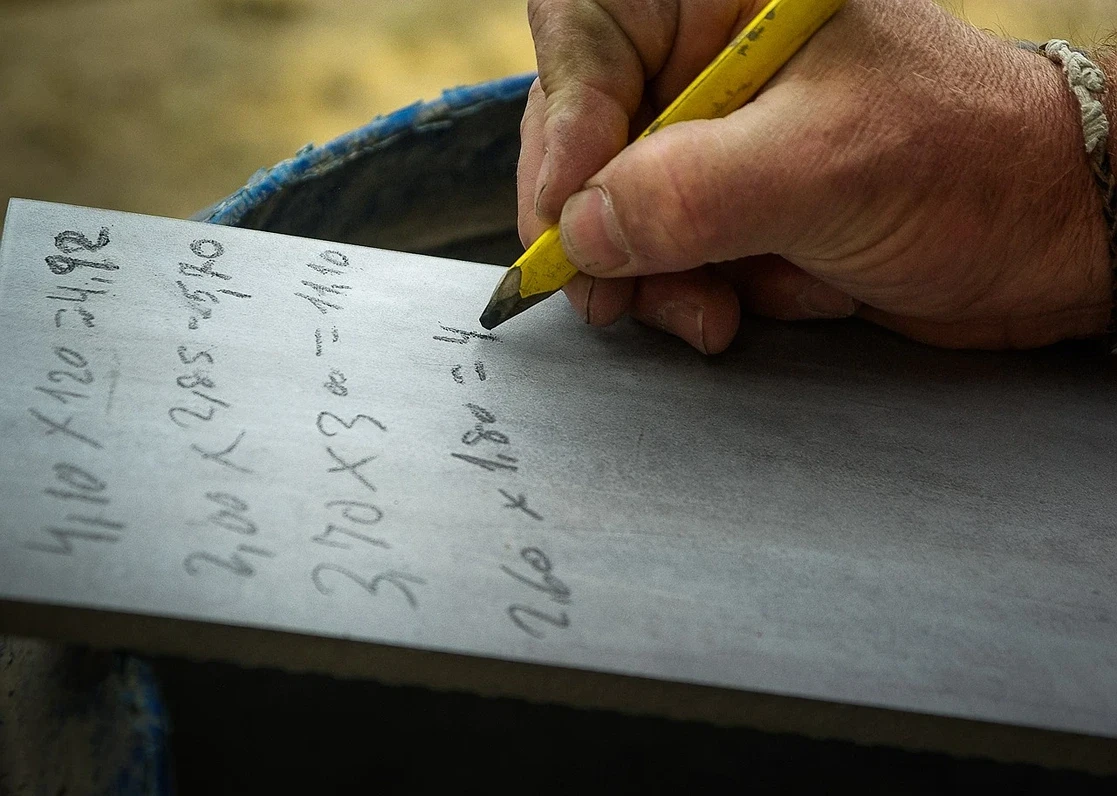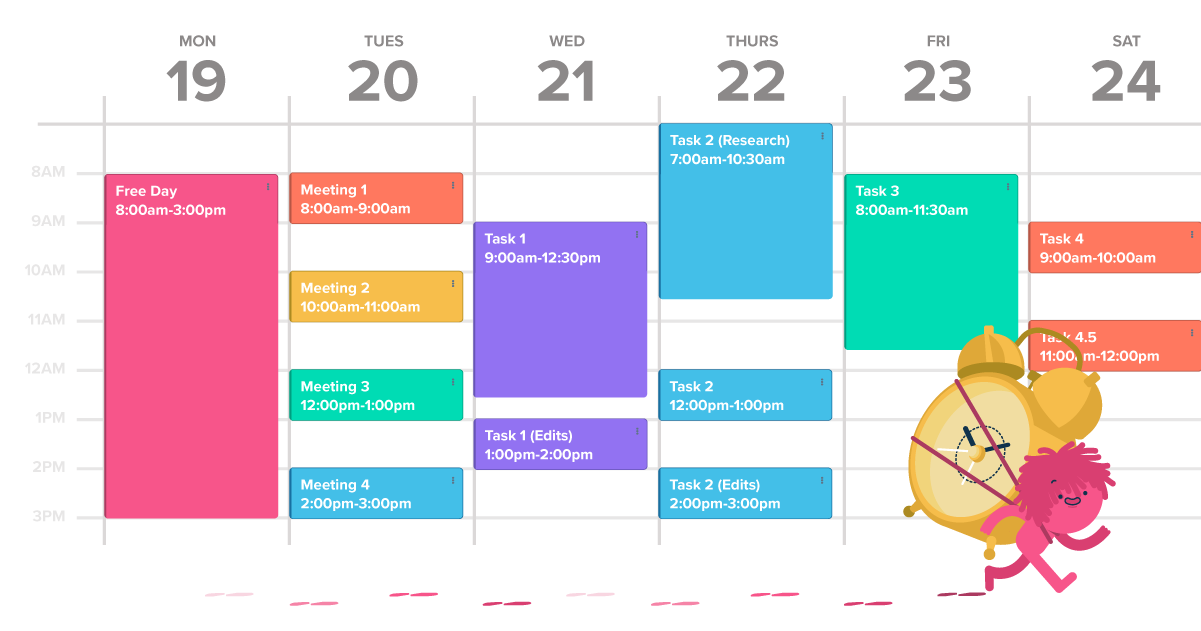This post may contain affiliate links. When you buy through links on our site, we may earn a small commission at no additional cost to you.
Productivity is a tricky thing, isn’t it? I remember doing my Master’s dissertation, and there were days so painfully unproductive that I thought I’d never actually finish it. We all go through periods of unproductivity and procrastination – it’s all part of being a student (and human). That’s why we’ve got these three productivity principles to help you face your next productivity slump.
Some Core Productivity Principles for Studying
From my research, it turns out there are tons of ‘productivity principles’ out there! Some articles say there are five core productivity principles, others say there are ten. Then there’s another article talking about the four pillars of productivity. So, from what I can conclude, people have a lot to say on how to be productive! For this post (and because we know you’re short on time with exams and term papers and all that), we’re giving you three core productivity principles (and an extra two!) to get you through your research, writing, and study sessions.
Productivity Hack 1: Set Your (Bite-Sized) Goals
We’ve talked about it in a lot of our posts when it comes to studying: You always need to establish your ‘why’ and ‘what’ (or, in other words, your goal for your study session). What do you intend to achieve today? Do you need to revise a particular subject for an exam? Are you conducting research for your thesis? Do you need to write your term paper?
You need to have a very specific goal in mind when you sit down at your desk. You may have heard this before, but your goals should always be SMART (specific, measurable, achievable, realistic, and timely):
- Be specific with your goal. For example, ‘Today I’ll write two sub-chapters of my thesis’ or ‘Over the next two hours, I will have learnt X and Y topics for my upcoming test’.
- Make sure your goals are measurable and (for another ‘m’) micro. As I said above, set goals that you can measure (X number of pages written, Y number of chapters studied). Also, set micro (or mini) goals that are achievable. Giving yourself overwhelming tasks like ‘I’ll study this whole book in ten hours’ or ‘I’ll write two chapters of my thesis today’ is too much – you’ll just get overwhelmed and probably procrastinate!
- The above point all ties in with being realistic with your goals and with yourself. If you know you can’t study for more than 45 minutes without taking a break, don’t set a goal of a ‘three-hour study session on X topic’.
When it comes to the ‘why’ part of goal-setting, remember why you’re writing this term paper or why you’re studying for this test. And I don’t mean ‘because I have to pass’ – that puts pressure on you and is a little demotivating in all honesty. There is a reason why you started studying and chose a particular course – let that drive you when the slog of studying seems a bit too much to handle.
Productivity Hack 2: Get Rid of Distractions
It has been scientifically proven that our human brains cannot focus on more than one activity at a time. When we multitask, we’re using more energy, sending us towards that dreaded productivity slump.
When you sit down to study or write, then that’s ALL you should be doing. Put your phone away (seriously far away) and turn your notifications off. Head to a quiet corner of the library where there are few people around to disturb you. Tell your roommates/siblings/whoever you’re living with that you’re entering into a study session and don’t want to be disturbed. And please, please do your best not to fall down a YouTube rabbit hole about who wore what at the Met Gala. I know when you’re writing on your laptop or using the internet to study, it is all too easy to watch ‘just one quick video’ on something totally unrelated to your work. If you need something other than quiet when studying, rather try out a study music playlist.
According to Carlson’s law, ‘Continuous work takes less time and energy than when it is done several times.’ This means that you should achieve your study session/writing session goals to avoid going back and trying to achieve them again at a later stage.
Productivity Hack 3: Do Not Push Yourself to the Limit
Contrary to widespread belief, you should not work yourself to the bone! I don’t know where this idea came from that we have to overwork ourselves (?) –I mean there’s even a scientific law (called Illich’s law) that says ‘beyond a certain threshold, the human efficiency decreases, even becomes negative’.
That’s why it’s so important to take study breaks. And take it from someone (aka me) who used to think that studying for hours on end (even through the night) without breaks was a good thing: Pushing yourself to breaking point (or even burnout) is NOT productive and can end up doing more harm than good (also, just think about how many mistakes you make when you’re tired).
Quick real-life example: I was so tired when editing my dissertation, I wrote ‘shoulder’ instead of ‘soldier’ without even realising it. Talk about making a first-grader error!
Here’s the deal:
Every individual has a limited energy capacity to distribute to different priorities, which should be restored afterwards. For example, if you cram for ten hours a day, you will quickly burn through your energy store, restoration will take longer, and you’ll just land up wasting your next day. I’ve mentioned this before: in an ideal world, eight hours of our day should be for work/study, eight hours for exercise and other life activities, and eight hours for sleep. And those eight hours for study include attending classes and taking breaks. So please don’t cram for ten hours a day – you’re just doing a major disservice to yourself (and your results).

The Power of the Pareto Principle and 2-Minute Rule
And just to help you be extra productive, here are two more principles that harness the power of time to get you started and motivated!
The Pareto Principle
According to the Pareto principle, when it comes to many outcomes, 80% of consequences come from 20% of causes. In other words, 80% of your effort gives you 20% of your results (and vice versa), which means that if you focus on the 20% that creates the 80% of your results, you can learn to study more efficiently and effectively! To put it very simply, you need to learn how to focus on the main things that will yield the best outcome so that your 20% will actually give you 80%! So, when you’re struggling to be productive, try to remember and harness this principle. Here are some examples of how you can do this:
- Say you’re writing a term paper and you’re doing research on the topic. You could technically research forever, but the trick with the Pareto principle is to identify 20% of your research that will be valuable and useful to your term paper. Then use this 20% of info to start writing immediately. So instead of researching for hours on end trying to find suitable info for your paper, just pick out 20% of the good stuff to start writing. This way, your Word doc won’t be blank after a few hours, which is always encouraging!
- If you’re preparing for an exam, rather focus on studying and revising your main topics as opposed to trying to learn something new. This is because about 80% of your exam success will come from the last 20% you spend on studying for the exam. If you’re interested, you can check out Robert Koch’s book, The 80/20 Principle: The Secret to Achieving More with Less. Koch used the 80/20 principle to graduate from the prestigious Oxford University. He discovered that you can answer between 80 and 100% of your exam by learning 20% of your study materials. This means you should focus on core topics rather than trying to understand EVERYTHING about the syllabus. Plus, even if you don’t study certain chapters/topics of your syllabus, it’s often likely you will know some things from simply listening in class or from general knowledge!
The 2-Minute Rule
I learnt this one from one of the awesome StudySmarter employees, Oğulcan Tezcan shared this with me:
‘Most people think that motivation is something you need to have before starting something. It is actually the opposite. Motivation is something you get after you have done a small part of what you want to complete. If you have a goal/task in mind, just focus on the first two minutes of that goal/task. This means that your goal should be to get through the first two minutes of that activity. When applied, you will realise that you can do more and want to do more. This is actually an old saying in practice: start and you are halfway there.’
So, the trick is to start for two minutes, and I can guarantee you, it works. Whenever I don’t feel like exercising, for example, I just start … and after those two minutes have gone by, I’m in it to win it!
Also, some further awesome wisdom from Oğulcan:
‘Even when I am super tired and can’t even think of doing anything other than sleeping, but didn’t study/work out/take courses that day, I set a goal of doing the first 2 minutes and dropping it for the day … Most of the time, I end up spending at least half an hour to an hour on that task. Growth is exponential, not linear. 1% growth every day results in 37778% growth at the end of the year.’
Enough said!
A Quick Word on the Productivity Curve
During a typical study session (and in ideal cases), once you start working, your productivity increases, reaches its peak, and then gradually decreases over time (we can call these stages start, peak, and end). This is why it is SO important to take study breaks (plus, studies show that we humans generally cannot do more than 90 minutes of intellectual work). And if you apply the productive principles we mentioned above to each stage of the curve, you’re guaranteed to have a successful study session!
Book Recommendations on Productivity
before we end, I want to give you some awesome books about productivity you may want to read.
- Atomic Habits by James Clear. Habits can help you to be productive and less stressed.
- The Productivity Project by Chris Bailey. This book will give you a different perspective on productivity ideas and principles. He also included some challenges for the reader.
- Getting things done by David Allen. This is also and amazing book about organisation and you guessed it: getting things done.
- Deep Work by Cal Newport. Deep Work is great for being productive, try it out.
And remember when you want to listen to books while doing your chores than listen to them on Audible.
Improve Your Productivity While Studying
OK, full disclaimer: there will always be some days when you are simply unable to be productive. And this could be a good sign that your body and mind just need a break and a day of sleep, including bingeing your favourite show and chilling. But once you’ve recovered and need to get back to the grind, we hope the principles mentioned in this post will help you have some of your most productive study/writing sessions ever!
Also, if you need a friend to hold you accountable and help you study effectively and efficiently, you need to check out the StudySmarter app.
Frequently Asked Questions (F.A.Qs)
You can improve your productivity while studying by setting SMART goals (specific, measurable, achievable, realistic, and timely) for every study/writing session and getting rid of distractions (especially your phone!). You can also harness the Pareto principle and the two-minute rule (just start studying/writing for two minutes and motivation will come!), and make sure that you take breaks.
According to the Pareto principle, when it comes to many outcomes, 80% of consequences come from 20% of causes. In other words, 80% of your effort gives you 20% of your results (and vice versa). For example, if you’re preparing for an exam, rather focus on studying and revising your main topics as opposed to trying to learn something new. This is because about 80% of your exam success will come from the last 20% you spend on studying for the exam. Also, it is possible for you to answer between 80 and 100% of your exam by learning 20% of your study materials.
There are many productivity principles out there. Some principles of study skills can include setting SMART goals, getting rid of distractions during your study session, taking breaks (such as studying for 45 minutes and then taking a break for 15 minutes), and harnessing the 80/20 rule.
How we ensure our content is accurate and trustworthy?
At StudySmarter, we have created a learning platform that serves millions of students. Meet the people who work hard to deliver fact based content as well as making sure it is verified.

Gabriel Freitas is an AI Engineer with a solid experience in software development, machine learning algorithms, and generative AI, including large language models’ (LLMs) applications. Graduated in Electrical Engineering at the University of São Paulo, he is currently pursuing an MSc in Computer Engineering at the University of Campinas, specializing in machine learning topics. Gabriel has a strong background in software engineering and has worked on projects involving computer vision, embedded AI, and LLM applications.
Get to know Gabriel




